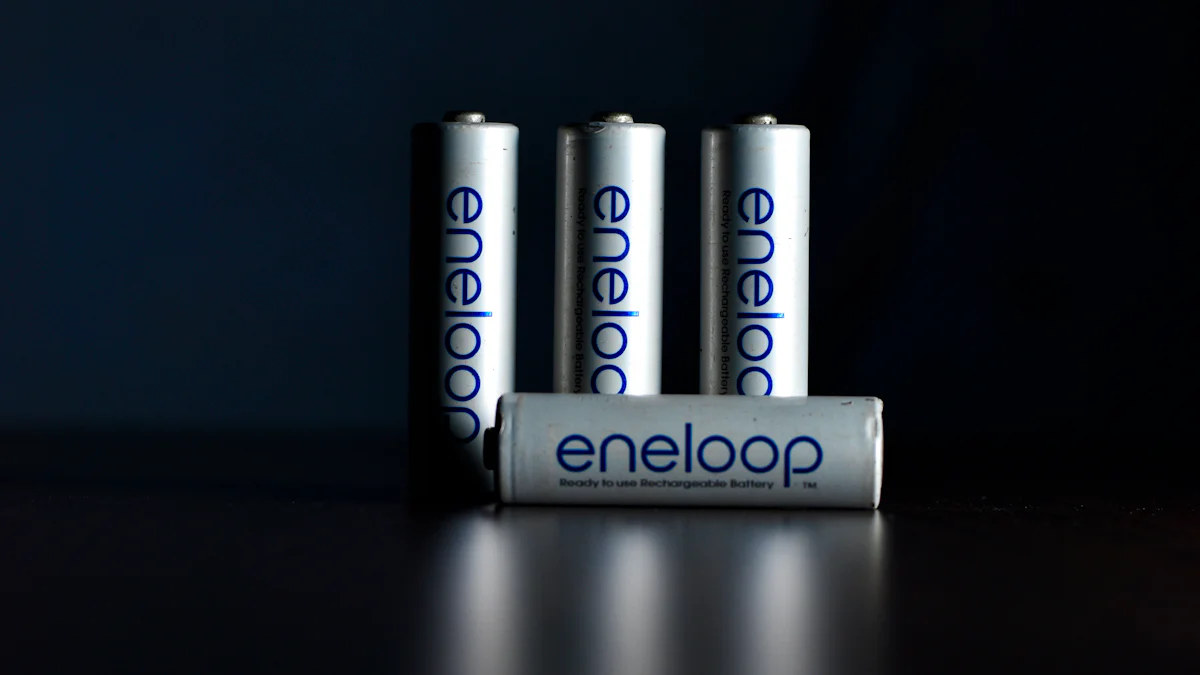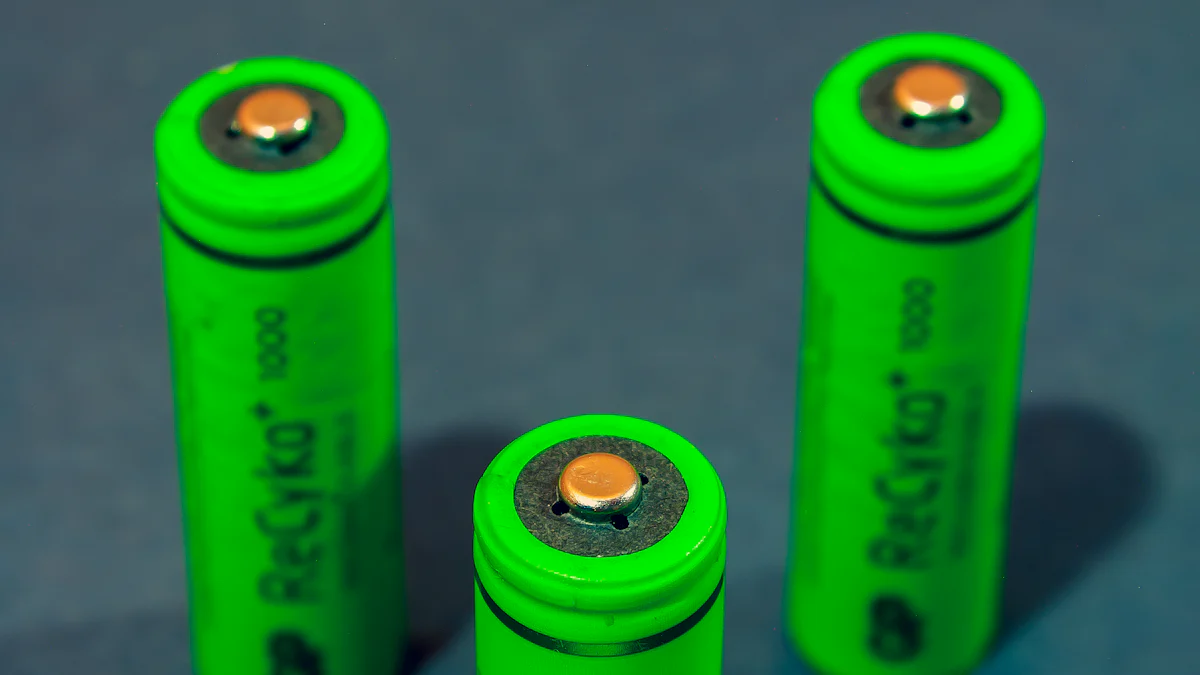Key Takeaways
- Alkaline batteries provide a reliable and consistent power source, enhancing the responsiveness of remote controls.
- Their longer lifespan compared to other battery types, like carbon-zinc, makes them a cost-effective choice for powering devices.
- Proper installation and handling of alkaline batteries are crucial to prevent damage and ensure optimal performance.
- Storing alkaline batteries in a cool, dry place can significantly extend their lifespan and maintain their charge.
- Regular cleaning of remote controls can prevent non-responsive buttons and improve overall functionality.
- Avoid mixing old and new batteries to prevent leakage and ensure even power distribution in devices.
- Alkaline batteries are widely available and compatible with various devices, making them a practical choice for everyday use.
Benefits of Alkaline Batteries

Longer Lifespan
Alkaline batteries stand out for their impressive longevity. When I compare them to other battery types, such as carbon-zinc batteries, the difference becomes clear. Alkaline batteries offer a higher energy density and last significantly longer. This makes them ideal for devices like remote controls that require sustained power.
Comparison with Other Battery Types
In my experience, alkaline batteries outperform carbon-zinc batteries in several ways. They provide more energy, which translates to longer usage times. While carbon-zinc batteries might be suitable for low-drain devices, alkaline batteries excel in high-drain applications. This makes them a preferred choice for many consumers and manufacturers.
Cost-effectiveness Over Time
Although alkaline batteries might have a higher upfront cost than some alternatives, they prove to be more cost-effective over time. Their longer lifespan means fewer replacements, saving money in the long run. For instance, when I use AA alkaline batteries, I find them versatile and widely available, making them a practical and economical option.
Consistent Power Output
One of the key advantages of alkaline batteries is their consistent power output. This consistency ensures that devices like remote controls remain responsive and reliable.
Impact on Remote Control Responsiveness
I have noticed that remote controls powered by alkaline batteries respond more quickly and accurately. The steady energy supply prevents delays and enhances the overall user experience. This is crucial for devices where immediate response is necessary.
Avoiding Power Fluctuations
Power fluctuations can disrupt the performance of electronic devices. Alkaline batteries minimize these fluctuations, providing a stable power source. This stability is essential for maintaining the functionality of remote controls and other sensitive electronics.
Reliability and Availability
Alkaline batteries are known for their reliability and ease of access. I appreciate how simple it is to find replacements when needed.
Ease of Finding Replacements
Whenever I need to replace batteries, I can easily find alkaline batteries in most stores. Their widespread availability ensures that I never have to worry about running out of power for my devices.
Trusted Performance in Various Devices
Alkaline batteries deliver trusted performance across a wide range of devices. From remote controls to toys and beyond, they consistently provide the power needed to keep everything running smoothly. This reliability makes them a staple in my household and many others.
Proper Use and Maintenance of Alkaline Batteries

Correct Installation
Ensuring the correct installation of alkaline batteries is crucial for optimal performance. I always make sure to check the polarity before inserting them into any device. This simple step prevents potential damage and ensures the device functions properly.
Ensuring Proper Polarity
I pay close attention to the positive and negative ends of the battery. Aligning them correctly with the device’s terminals is essential. Incorrect polarity can lead to malfunction or even damage to the device.
Avoiding Battery Compartment Damage
To avoid damaging the battery compartment, I handle batteries with care. Forcing them into place or using excessive pressure can cause harm. I gently insert and remove batteries to maintain the integrity of the compartment.
Storage and Handling
Proper storage and handling extend the life of alkaline batteries. I follow a few key practices to ensure they remain in good condition.
Storing in a Cool, Dry Place
I store my batteries in a cool, dry place. Heat and humidity can reduce their lifespan. By keeping them away from direct sunlight and moisture, I ensure they retain their charge longer.
Avoiding Mixing Old and New Batteries
Mixing old and new batteries can lead to leakage or reduced performance. I always replace all batteries in a device at the same time. This practice prevents uneven power distribution and prolongs the device’s functionality.
Disposal and Recycling
Disposing of alkaline batteries responsibly is important for environmental protection. I follow safe disposal methods to minimize impact.
Safe Disposal Methods
I dispose of alkaline batteries as ordinary waste, as they do not contain harmful substances like lead or mercury. However, I always check local regulations, as some areas have specific guidelines for battery disposal.
Environmental Considerations
While alkaline batteries are more environmentally friendly than some alternatives, I remain conscious of their impact. I explore recycling options whenever possible. Recycling helps reduce waste and supports sustainable practices.
Solving Common Remote Control Issues

Non-Responsive Buttons
Remote controls sometimes face issues with non-responsive buttons. I have encountered this problem, and it often stems from simple causes.
Cleaning the Remote Control
Dust and grime can accumulate on the remote control over time. This buildup affects button responsiveness. I recommend regularly cleaning the remote. Use a soft cloth slightly dampened with rubbing alcohol. Gently wipe the surface and around the buttons. This practice helps maintain optimal performance.
Checking for Obstructions
Obstructions between the remote and the device can also cause non-responsiveness. I ensure that nothing blocks the signal path. Removing any obstacles, such as furniture or other electronic devices, can improve functionality. This simple check often resolves the issue.
Battery Problems
Battery issues frequently lead to remote control malfunctions. Recognizing and addressing these problems ensures continued performance.
Identifying Signs of Battery Failure
I look for signs of battery failure, such as dimming LED lights or inconsistent device operation. These indicators suggest that the batteries may need replacement. Alkaline batteries, with their high energy density, typically last longer. However, they eventually require changing.
Steps to Replace Batteries Correctly
Replacing batteries correctly is crucial. I follow these steps:
- Open the battery compartment carefully.
- Remove the old batteries.
- Insert new alkaline batteries, ensuring correct polarity.
- Close the compartment securely.
These steps prevent damage and ensure the remote functions properly.
Interference and Signal Issues
Interference and signal issues can disrupt remote control performance. Addressing these problems enhances reliability.
Minimizing Electronic Interference
Electronic devices can interfere with remote signals. I minimize interference by keeping the remote away from other electronics. This practice reduces signal disruption and improves performance.
Ensuring Clear Line of Sight
A clear line of sight between the remote and the device is essential. I position myself directly in front of the device when using the remote. This alignment ensures the signal reaches the device without obstruction, enhancing responsiveness.
Alkaline Battery For Roller Shutter Remote Control Anti-Theft Device

Importance of Reliable Power
In my experience, the Alkaline Battery For Roller Shutter Remote Control Anti-Theft Device plays a crucial role in ensuring the security and functionality of these systems. The 12V23A LRV08L L1028 Alkaline Battery stands out due to its long shelf life and consistent energy output. These features guarantee that the remote control remains operational even after extended periods of inactivity. I find this reliability essential, especially when the device is not used continuously but must perform flawlessly when needed.
The resistance to leakage in alkaline batteries further enhances their reliability. I appreciate how this characteristic prevents potential damage to the remote control, ensuring it remains in optimal condition. The ability to store these batteries without worrying about power loss or leakage makes them an ideal choice for roller shutter remote controls. This reliability provides peace of mind, knowing that the anti-theft device will function effectively when required.
Enhancing Security Features
The Alkaline Battery For Roller Shutter Remote Control Anti-Theft Device significantly enhances the security features of these systems. I have observed that the consistent power output of alkaline batteries ensures that the remote control responds promptly and accurately. This responsiveness is vital for maintaining the security of the premises, as any delay could compromise safety.
Moreover, the compatibility of alkaline batteries with a wide range of devices adds to their appeal. I find it convenient that these batteries can be used interchangeably with other devices, reducing the need to stock multiple battery types. This versatility simplifies maintenance and ensures that the anti-theft device remains operational at all times.
Alkaline batteries have proven to be a superior choice for remote controls. They offer consistent energy output, ensuring devices operate smoothly and reliably. I find their compatibility with a wide range of devices, including the Alkaline Battery For Roller Shutter Remote Control Anti-Theft Device, particularly advantageous. This versatility means I can trust my remote controls to perform when needed. Switching to alkaline batteries enhances performance and reliability, making them an ideal power solution for anyone seeking dependable battery life.
FAQ

What makes alkaline batteries ideal for remote controls?
Alkaline batteries excel in energy density and longevity compared to carbon-zinc batteries. They retain power effectively and resist leakage, making them a reliable and durable choice for remote controls.
Why are alkaline batteries better than carbon-zinc batteries for remote controls?
Alkaline batteries deliver consistent energy over extended periods. Their reliable performance, long shelf life, and affordability make them the preferred choice for powering remote controls.
Why are alkaline batteries suited for low-drain devices like remote controls?
Alkaline batteries consistently prove to be the better choice for low-drain devices like remotes. They retain power well and resist leakage, ensuring optimal performance.
How long do alkaline batteries last in remote controls?
Alkaline batteries ensure that remote controls remain ready for use even after sitting idle for extended periods. Their longevity makes them a dependable option for continuous use.
What type of batteries are most widely used for remote controls?
Alkaline batteries are the most widely used type for remote controls. Their good energy density, relatively long shelf life, and availability make them a popular choice among consumers.
Can I mix old and new alkaline batteries in my remote control?
Mixing old and new batteries can lead to leakage or reduced performance. It’s best to replace all batteries in a device at the same time to ensure even power distribution and prolong functionality.
How should I store alkaline batteries to maximize their lifespan?
Store alkaline batteries in a cool, dry place. Avoid exposure to heat and humidity, as these conditions can reduce their lifespan. Proper storage helps maintain their charge longer.
Are alkaline batteries environmentally friendly?
While alkaline batteries are more environmentally friendly than some alternatives, it’s important to dispose of them responsibly. Explore recycling options whenever possible to support sustainable practices.
What should I do if my remote control buttons become non-responsive?
Non-responsive buttons often result from dust and grime buildup. Regularly clean the remote with a soft cloth slightly dampened with rubbing alcohol. Ensure there are no obstructions blocking the signal path.
How can I minimize interference with my remote control’s signal?
Keep the remote away from other electronic devices to reduce signal disruption. Ensure a clear line of sight between the remote and the device for optimal responsiveness.
Post time: Dec-17-2024




